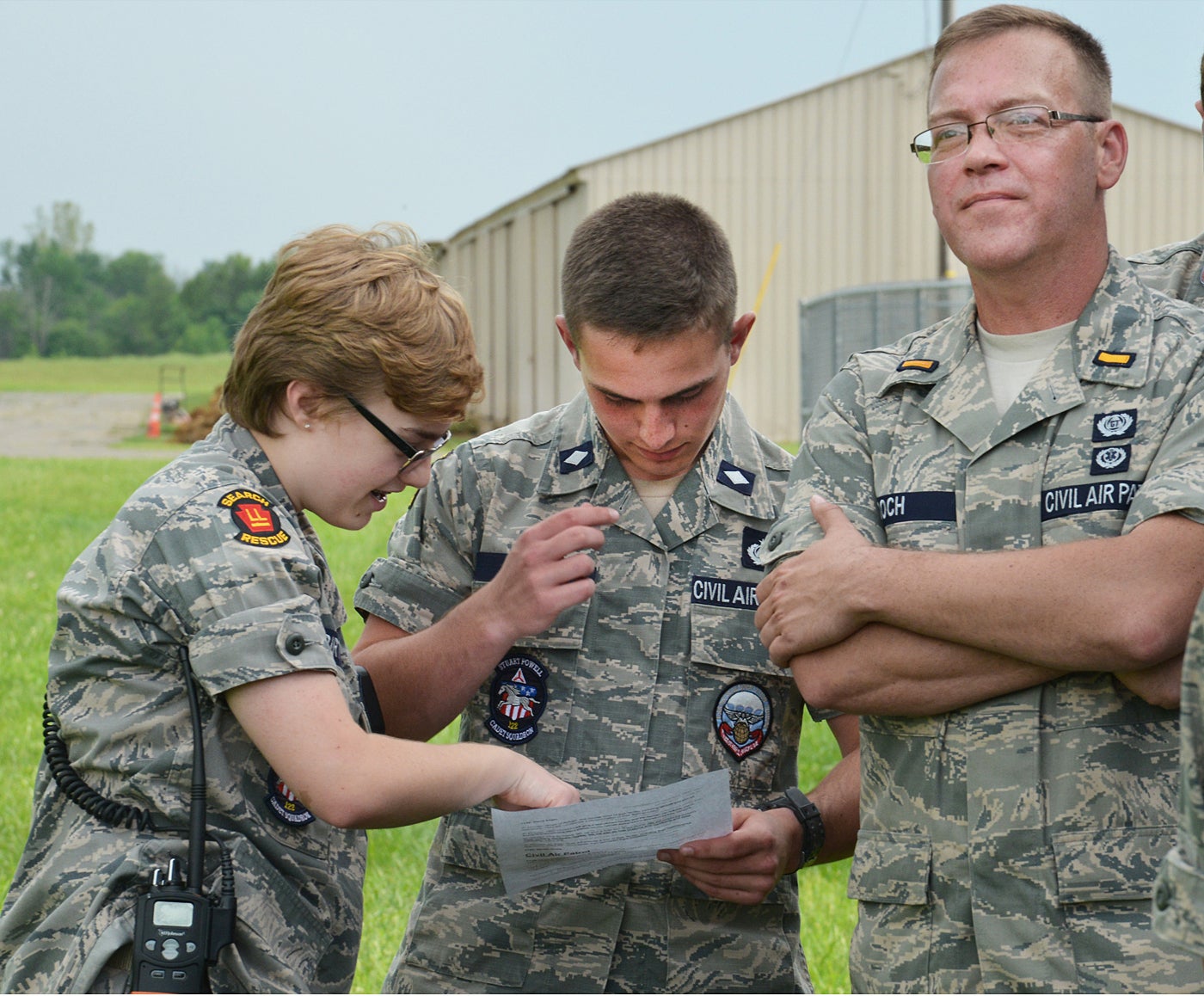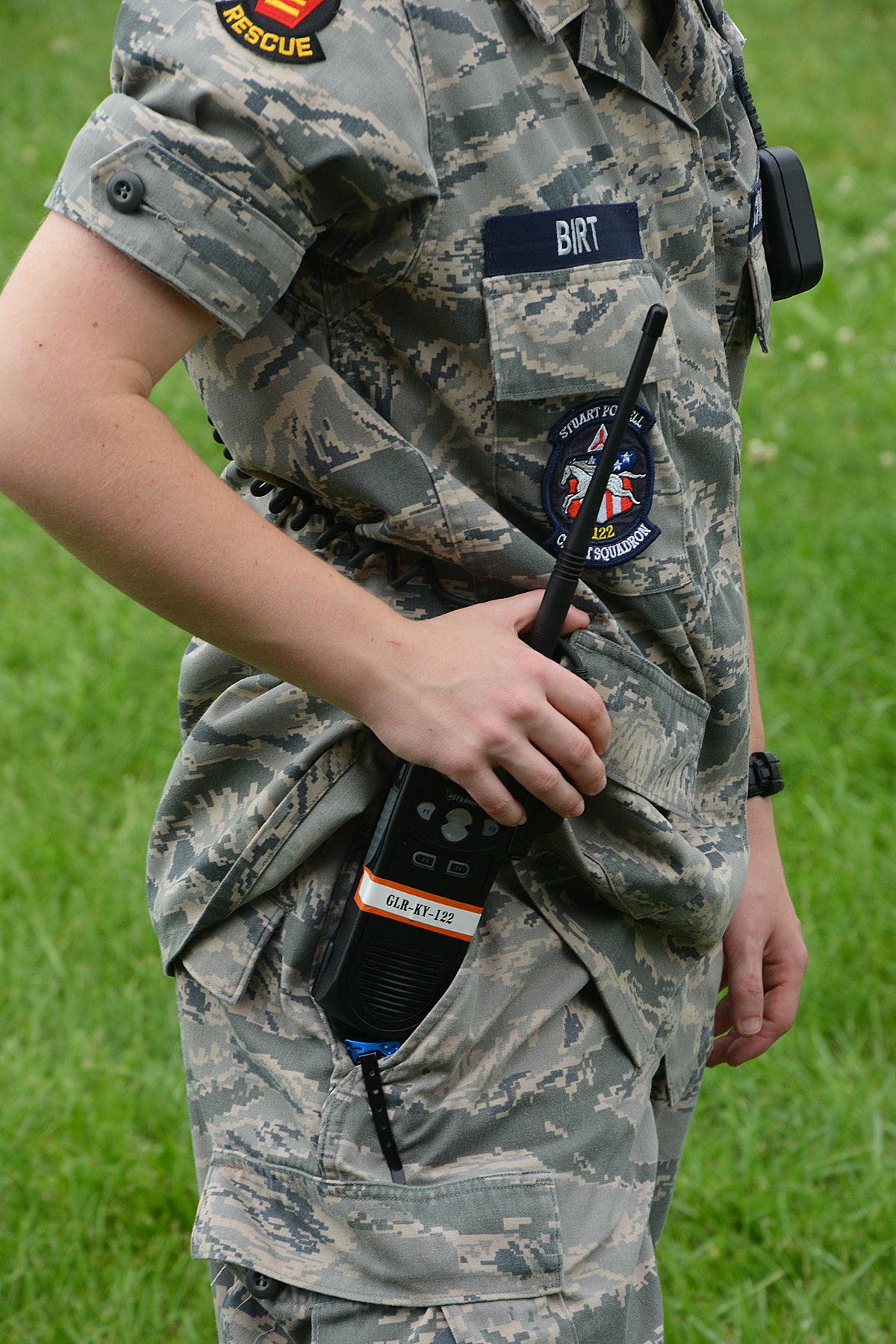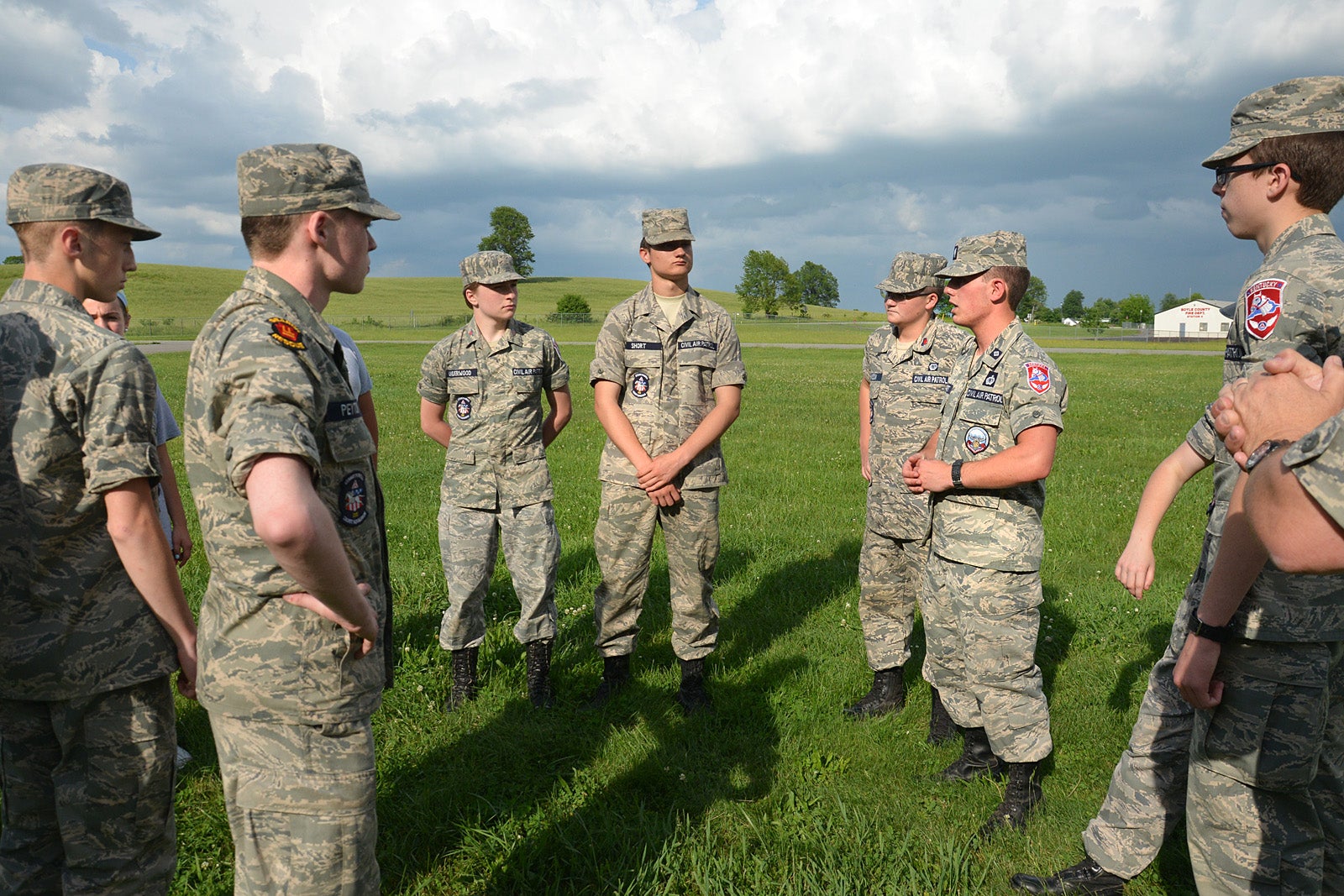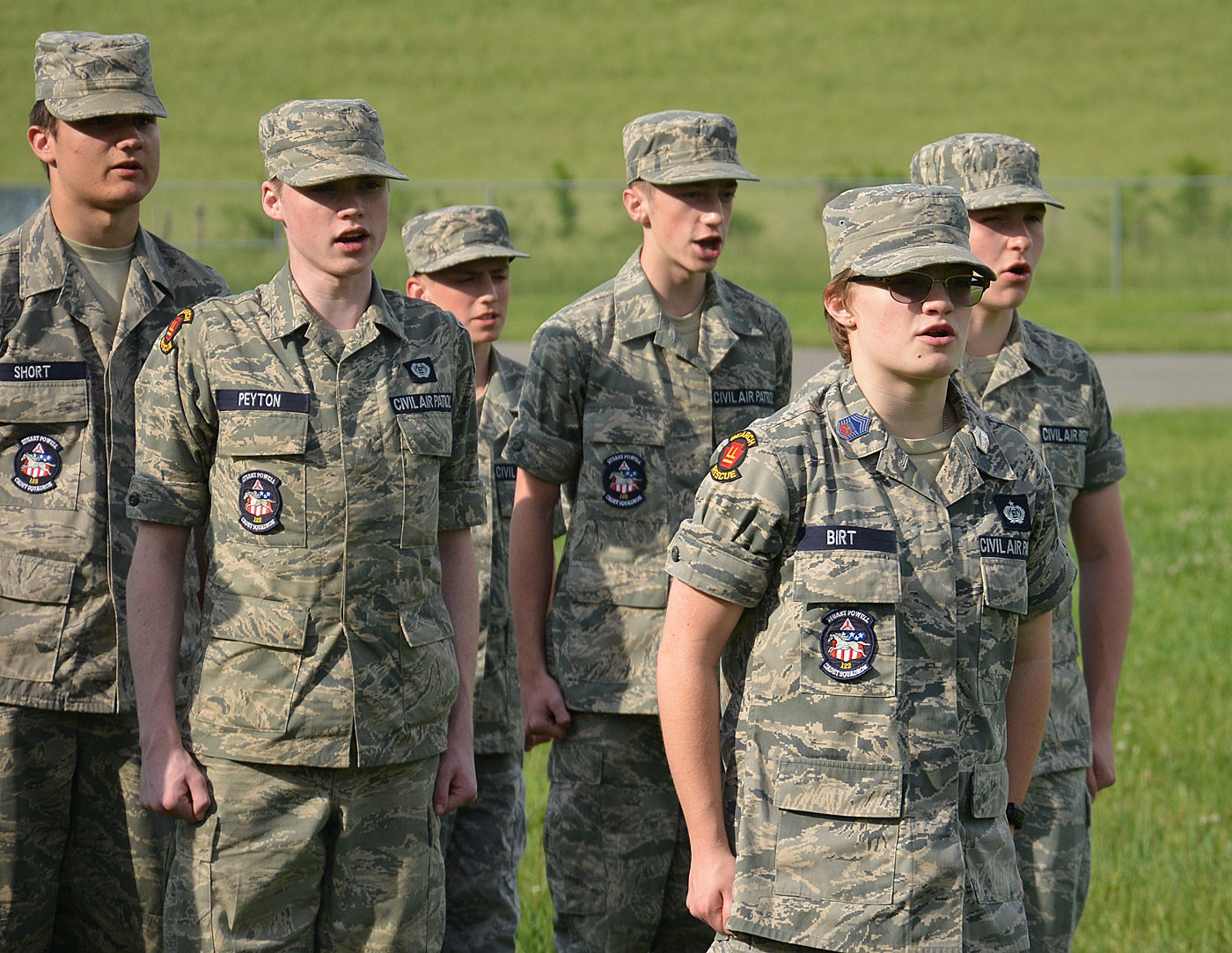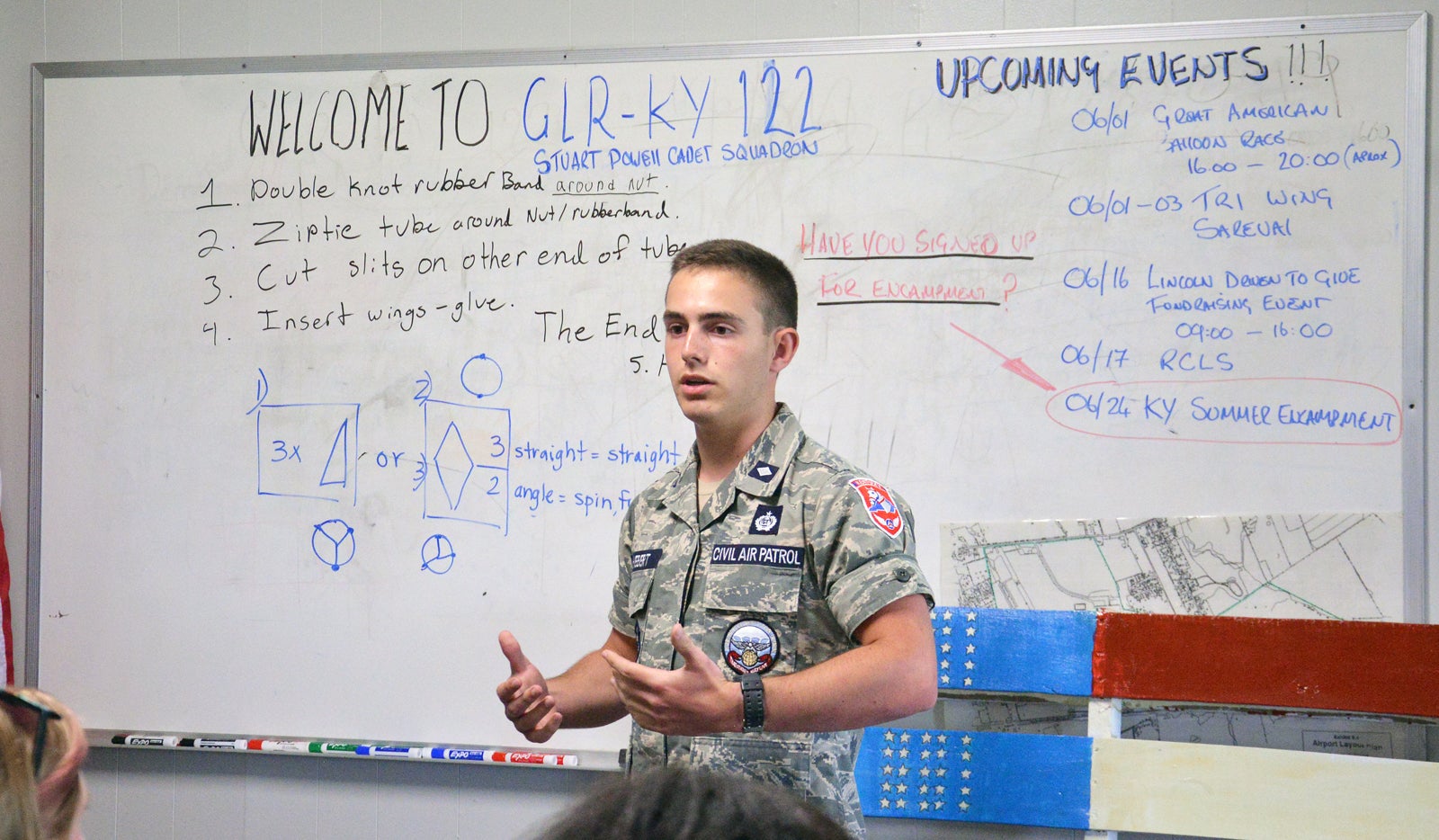Like daughter like father: Family members find a lot to like about Civil Air Patrol
Published 6:00 am Friday, August 10, 2018
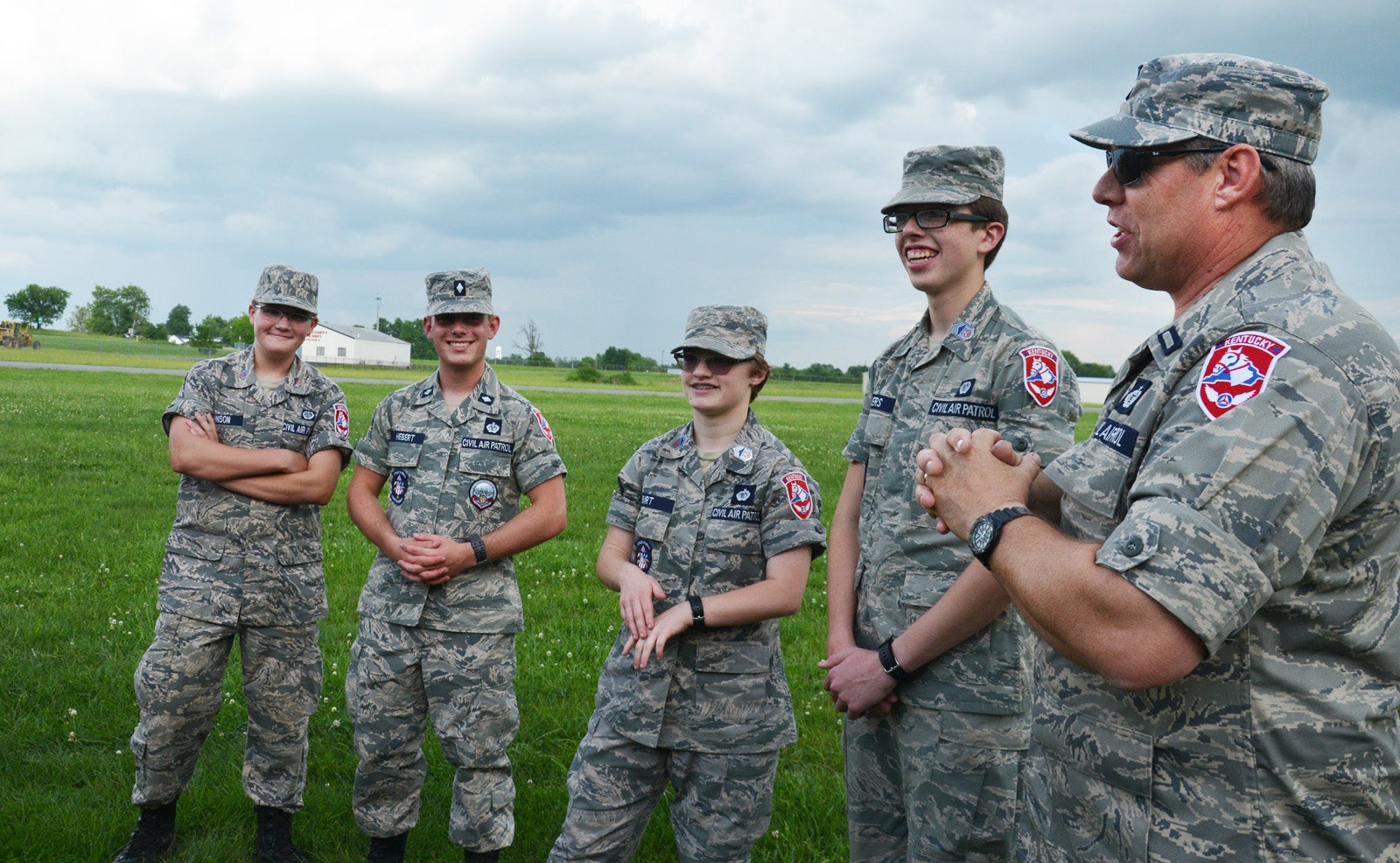
- Photos by Robin Hart/robin.hart@amnews.com First Lt. Nick Birt, far right, talks to CAP cadets about the importance of character.
When Nick Birt’s daughter Chloe attended Perryville Elementary School, she loved playing football with the boys. But in middle school, the boys were getting bigger than her and coaches were taking the sport much more seriously.
The day Chloe quit football and handed in her pads, Birt showed his daughter the Facebook page for the Civil Air Patrol, which has a chapter here in Boyle County.
“You have to find something to do and not sit around the house,” he told her.
He didn’t know at the time that Chloe wasn’t the only one about to discover a new passion.
“She was hooked right away,” he said. “… Then they went to work on me.”
Birt joined the Stuart Powell Cadet Squadron 122 Civil Air Patrol (CAP) shortly after his daughter. He’s been involved for almost two years now, and both he and his daughter have grown into leadership positions in the organization.
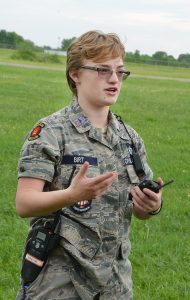
Robin Hart/robin.hart@amnews.com
Chloe Birt, 14, is commander of communications for the CAP squadron.
Birt is a first lieutenant senior member and Chloe is 2nd lieutenant cadet and communications commanding officer for the squadron.
The Civil Air Patrol officially started on Dec. 1, 1941 in New York state, just days before the attack on Pearl Harbor. Nearly 77 years later, CAP squadrons are spread across the United States, including right here in Boyle County.
According to its website, CAP is the official U.S Air Force auxiliary, but it’s strictly a volunteer organization for adults and students ages 12 to 18. CAP members perform about 95 percent of U.S. inland search and rescue missions and perform homeland security, disaster relief and counter-drug missions requested by government agencies.
Sitting in his office at CAP’s headquarters at Stuart Powell Field in Junction City, Birt said he doesn’t have his pilot’s license, but the squadron does search and rescue missions when they’re assigned.
He said a few members of the squadron, including Chloe, have just returned from a mission where they used sophisticated radio equipment and their own van to locate a distress signal that could have been from a downed aircraft. Thankfully, it was a false alarm, Birt said. But it was good training. He also proudly said that Chloe was in command of the radio equipment.
Birt said it’s important for kids to be involved with something like CAP “to get them off the couch.”
Chloe will be a freshman at Boyle County High School this year and is now a 2nd lieutenant cadet. But listening to the petite blonde with braces and large-framed glasses, one would guess she’s much more mature than a typical 14-year-old.
She said she hears that lot. People thinks she’s at least 16 or 17.
When Chloe first joined CAP, she was more interested in the aerospace side of the training — building rockets and learning about flying.
“But now I’m leaning toward emergency services,” she said.
Chloe said her goal is to enter the Air Force and work in security or law enforcement. Once she retires from military service, she may go into civilian law enforcement or even be a state trooper.
Birt said, “I’ve yet to meet a parent who hasn’t said their child has changed. My daughter has changed a huge amount since joining CAP … She’s always been able to talk to people, but the way she talks now and thinks about things is different. She’s still a 14-year-old girl, but there is a transformation once the uniform goes on. She takes control.”
Birt said CAP has a promotion process for cadets, as well as senior members. For the students, “they have to take on light tasks and learn to push themselves. The adults here are really to supervise. We get them (cadets) where they need to be.”
The weekly programs are all run by the cadets. The cadet commanders lead drills, develop the lesson plans and run the program. “They decide who’s going to teach what; who’s going to do what and at what time it’s going to be done.”
Birt said he just approves the plan. “The whole idea is they run it, and they learn from those skills.”
Birt said as cadets earn ribbons for tasks and go up through the ranks, the promotion board interviews them. “They have an interview and we’ll make them sweat a bit,” Birt said. “We’ll ask questions like, ‘What do you think your role is going to be?… What do you think you’ll be doing in five years?’ … Just questions to get them thinking and get them used to being asked questions point-blank.”
Birt said, “When these kids go to college interviews or job interviews, they’re not phased by talking to adults.”
During a recent meeting, Birt gave the cadets and spectators a brief lesson on character building.
“The definition of character, is what you do when nobody is looking. It’s easy to do the right thing when you know somebody is watching you.”
He continued that CAP wants to teach them to be better people and to give something back to the community — not because they want pats on the back or special awards — but because it’s the right thing to do.
Paige Rice, 18, is cadet captain of the squadron and is about to advance to senior member level. She’s been with the program for five years, following in the footsteps of her older sister. Her younger brother, Cadet Lieutenant Colonel Ryan Hebert leads the squadron. In fact, Hebert will be testing this weekend for the General Carl A. Spaatz Award, which is the highest cadet honor, Birt said.
Rice said what inspired her most was that, “The youth lead everything. I’d never seen that before. I realized there’s much, much more than weekly meetings — emergency services training, flying and all that kind of stuff.”
“There is something for everyone in CAP no matter what your interests are,” Rice said. “You can find something that you’ll enjoy, something that you didn’t even think you’d enjoy, but you will. Like Chloe here — she had no idea what radios were or what to do with them, and she really loves it now.
“… You kind of get out of the program what you put into it, so if you put a lot of time into it, you’ll get good experiences out of it.”
- Chloe Birt, left, Cadet Major Ryan Hebert discuss the CAP aerospace lesson as 2d Lt Nathan Gooch, stands by.
- Chloe Birt, 14, is commander of communications for the CAP squadron.
- Cadet Major Ryan Hebert, second from right, instructs other members of CAP during a recent meeting.
- Chloe Birt leads a group of cadets before a regular meeting of the local CAP
- Cadet Major Ryan Hebert, 16, with the Stuart Powell Squadron 122 Civil Air Patrol leads a class on building a simple 1-stage rocket


